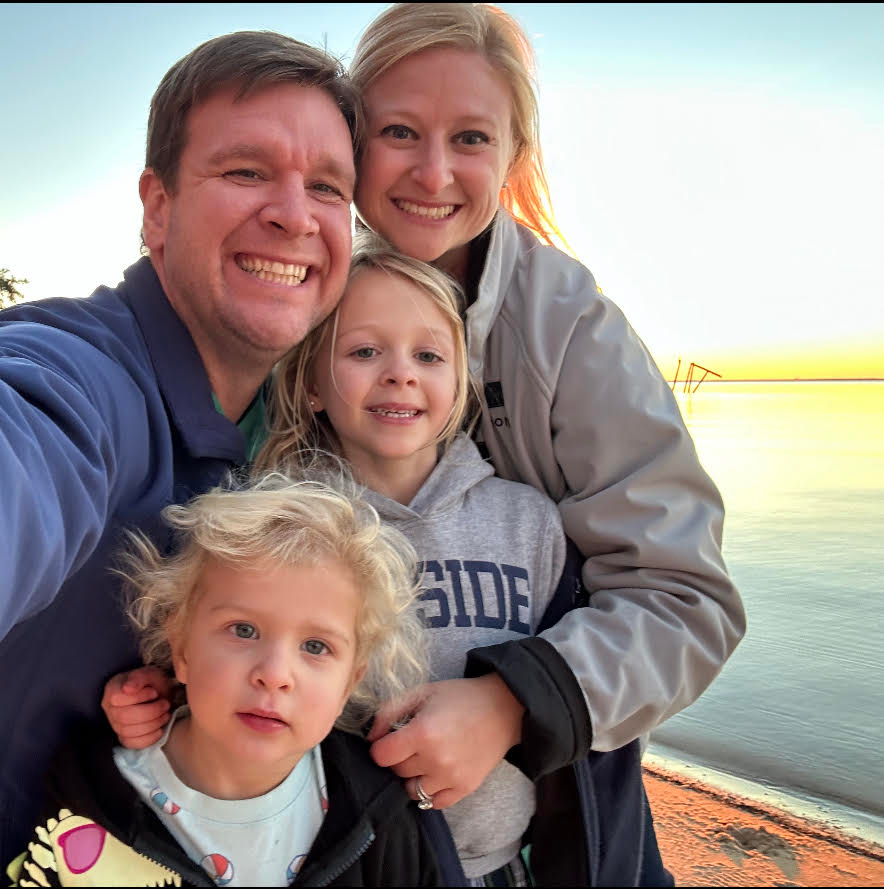Where Are They Now?
The Department of Anesthesiology has always had such wonderful people who have contributed to make it what it is today. We would like to know what some of our colleagues and friends who have moved on are doing now and how UMMC played a role in their careers and lives. If would like to be featured in future articles of the newsletter, please e-mail Sara Robertson at smbrobertson@umc.edu. We would love to hear from you!
Rachel Hulick, M.D.
2021 Residency Class

Tell us about what you have been doing since you graduated from the residency program. What does your anesthesia practice look like? How did UMMC prepare you for your current career?
It’s been quite a wild but wonderful adventure in the few years since graduation… My husband and I are both in medicine, so when we both finally finished training, we moved to Florida for our very first jobs. I took a position with a private anesthesia group at a super busy outpatient surgery center where there were 3 ORs, 2 GI suites, and a dedicated flouro room for pain procedures. Two anesthesiologists covered the center each day and typically did about 50-70 cases daily if all the rooms were running. Lack of patient acuity was made up for by the need to be extremely efficient. It was a great job with busy days but no nights, no call, and no weekends. Unfortunately, 8 months after we moved there, my husband’s hospital job contract was sold to an outside group without warning, leaving us 90 days to either accept some new very undesirable terms, or leave. I was 7 months pregnant with our second child at the time, so we packed up and took new jobs in Mobile, AL. I got a job with a large Anesthesia group and went back to practicing in an inpatient setting at a medium-sized community hospital, where we did basically everything except trauma and cranial neurosurgery. Inpatient work is my favorite. I loved that job and the people who worked there for over 2 years, until a spot opened up at long-standing private anesthesia group at the hospital 10 minutes from our house on the Eastern Shore. I now work for a wonderful group with 8 other anesthesiologists and feel I have found a pretty fantastic work-life balance. I work full-time, take 24-hour at-home call once every 8-9 days, and a weekend 6 times a year. I get post-call days off and cover a surgery center once a week. I supervise CRNAs in the daytime but do my own cases at night and on the weekends. We do tons of OB and hearts, plus ortho, vascular, colorectal & general surgery, urology, ENT, GYN, spine, & occasionally some peds.
Through all of this though, one important thing has been made abundantly clear: My residency training at UMMC taught me not only what I needed to do this job, but to do it really well. It gave me the wide experience and exposure to everything I needed and then some, leaving me with a foundation for sound clinical judgment and procedural skill that has carried me through some very challenging situations.
Starting practice on your own can be quite daunting, but much less so when you feel competent, prepared, and still have a handful of outstanding attending mentors to call if you get really stumped.
What did you enjoy most about being a resident in this program?
This is a hard question to answer but I think my favorite part was the fact that as the only academic center in the state, you really saw it ALL at UMMC. I am not easily intimidated by very sick patients, crazy pathologies, or a BMI of 82 because I trained at the U. It gave me a special perspective that has stayed with me and helped me collect many pearls of clinical wisdom that I still draw on in my daily practice.
I also really, really loved the people who work and teach there.
If you could give any advice to our current trainees, what would it be?
1. This one may sound obvious, but in my experience, it is not for everyone. Be NICE to people. Introduce yourself to each person when you get there. Learn names, from OR staff to the scrub techs, nurses & orderlies. Be fun and approachable. Don’t get stuck with a mentality where you think because you are the doctor you don’t need to do this. You cannot do your job well without them and it makes people really like you. This is critical when #%?! hits the fan and you need all hands on deck.
2. Get good and efficient at your procedural skills. Do not be shy or timid and assume you can figure this out later. You will be judged if your epidurals or blocks don’t work or if you can’t get the line in while someone is trying to die. The time to practice is now. Do as many as you possibly can to make yourself comfortable in any scenario.
3. Do not be afraid to phone a friend or ask for help. There are many tough situations that come up where the right answer for what to do is not crystal clear. You must be able to recognize when you don’t know how best to handle something and bounce your ideas off someone else.
Dennis Marcelo, M.D.
2019 Residency Class/2020 Pain Management Fellowship Class

Tell us about what you have been doing since you graduated from the residency program. What does your anesthesia practice look like? How did UMMC prepare you for your current career?
After graduating residency and pain medicine fellowship, I relocated to Colorado Springs to practice interventional pain management. I worked there for 4 years, and moved back to Mississippi to join Total Pain Care. Both practices have been strictly pain medicine. UMMC helped prepare me to be a well rounded clinician and function at a high volume pain practice.
What did you enjoy most about being a resident in this program?
I really enjoyed working with my fellow residents both in anesthesiology and pain medicine. The attendings, CRNAs, and techs are a great bunch who are there to help you succeed.
If you could give any advice to our current trainees, what would it be?
Take advantage of all the opportunities the Anesthesiology residency/subspecialty program has to offer. You will be prepared to take on any job opportunities that you come across.


